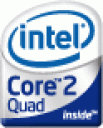 I write this on (cramped, poor service Economy class SAS) the flight from Tokyo to Copenhagen. The aircraft attendants just told us that there are some issues with the movies in the in-flight entertainment system, and they will need to take down the system and reboot it. This process is supposed to take some twenty minutes! Nothing to be upset about, really, and likely totally unrelated to anything important for flying the plane. But still, needing twenty minutes for a reset is a bit much for something like this… makes Windows look positively fast in comparison. I guess it has to do with initializing some 200 individual screen units.
I write this on (cramped, poor service Economy class SAS) the flight from Tokyo to Copenhagen. The aircraft attendants just told us that there are some issues with the movies in the in-flight entertainment system, and they will need to take down the system and reboot it. This process is supposed to take some twenty minutes! Nothing to be upset about, really, and likely totally unrelated to anything important for flying the plane. But still, needing twenty minutes for a reset is a bit much for something like this… makes Windows look positively fast in comparison. I guess it has to do with initializing some 200 individual screen units.
Anyway, in the end the system was up partially. All recent feature movies were missing (but the selection of older movies was intact), and the forward and downwards-looking cameras were inaccessible. Apart from that, it appeared to function normally. Interesting that it can be partially broken like that.

 I write this on (cramped, poor service Economy class SAS) the flight from Tokyo to Copenhagen. The aircraft attendants just told us that there are some issues with the movies in the in-flight entertainment system, and they will need to take down the system and reboot it. This process is supposed to take some twenty minutes! Nothing to be upset about, really, and likely totally unrelated to anything important for flying the plane. But still, needing twenty minutes for a reset is a bit much for something like this… makes Windows look positively fast in comparison. I guess it has to do with initializing some 200 individual screen units.
I write this on (cramped, poor service Economy class SAS) the flight from Tokyo to Copenhagen. The aircraft attendants just told us that there are some issues with the movies in the in-flight entertainment system, and they will need to take down the system and reboot it. This process is supposed to take some twenty minutes! Nothing to be upset about, really, and likely totally unrelated to anything important for flying the plane. But still, needing twenty minutes for a reset is a bit much for something like this… makes Windows look positively fast in comparison. I guess it has to do with initializing some 200 individual screen units.